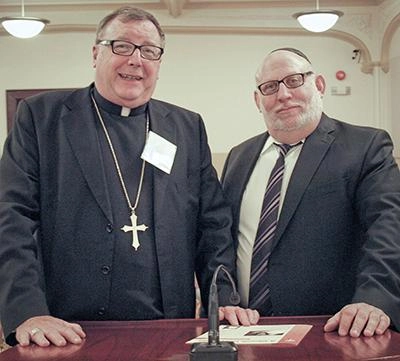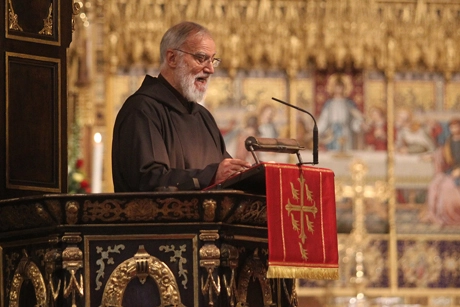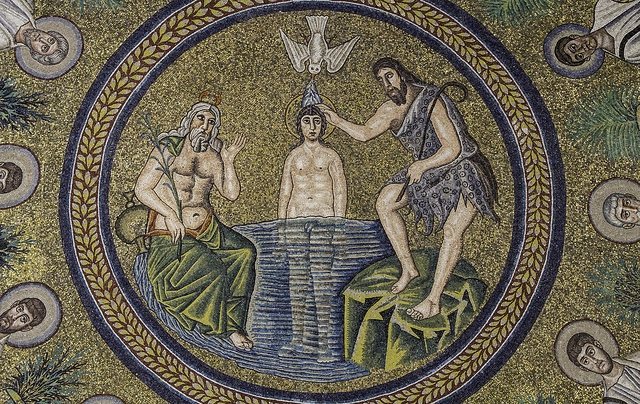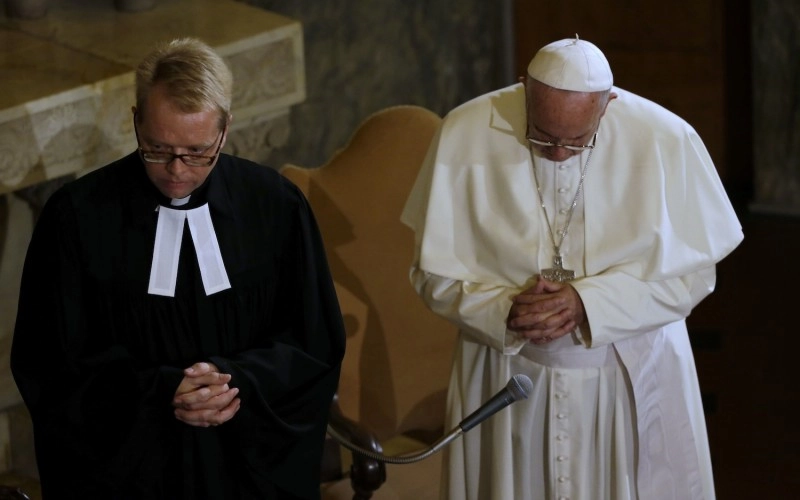- Français
- |
- Booklist
- |
- Week of Prayer
- |
- Links
- Areopagus - a forum for dialogue
- Academic journals
- Acronyms
- Bible tools
- Bibliographies
- Booksellers and publishers
- Churches
- Canadian church headquarters
- Directory of Saskatchewan churches
- Retreat centres
- Saskatchewan church and non-profit agencies
- Ecumenism.net Denominational links
- Anabaptist & Mennonite
- Anglican
- Baptist
- Evangelical
- Independent episcopal
- Lutheran
- Methodist, Wesleyan, and Holiness
- Miscellaneous
- Mormon
- Orthodox (Eastern & Oriental)
- Para-church ministries
- Pentecostal / charismatic
- Presbyterian & Reformed
- Quaker (Society of Friends)
- Roman & Eastern Catholic
- United and uniting
- Documents of Ecumenical Interest
- Ecumenical agencies
- Ecumenical Booklist
- Ecumenical Dialogues
- Glossary
- Human rights
- Inter-religious links
- Justice & peace
- Lectionaries
- Religious news services
- Resource pages
- Search Ecumenism.Net
- |
- Documents
- Ancient & Medieval texts
- Ecumenical Dialogues
- Interreligious
- Anabaptist & Mennonite
- Anglican
- Evangelical
- Lutheran
- Orthodox
- Reformed & Presbyterian
- Roman & Eastern Catholic
- United & Uniting
- Miscellaneous churches
- Canadian Council of Churches (CCC)
- Conference of European Churches (CEC)
- Interchurch Families International Network (IFIN)
- National Council of Churches in Australia (NCCA)
- Lausanne Committee for World Evangelism (LCWE)
- World Council of Churches (WCC)
- Other ecumenical documents
Church traditions
Documents from ecumenical agencies
- |
- Dialogues
- Adventist-Reformed
- African Instituted Churches-Reformed
- Anglican-Lutheran
- Anglican-Orthodox
- Anglican-Reformed
- Anglican-Roman Catholic
- Anglican-United/Uniting
- Baptist-Reformed
- Disciples of Christ-Reformed
- Disciples of Christ-Roman Catholic
- Evangelical-Roman Catholic
- Lutheran-Mennonite
- Lutheran-Mennonite-Roman Catholic
- Lutheran-Reformed
- Lutheran-Roman Catholic
- Mennonite-Reformed
- Mennonite-Roman Catholic
- Methodist-Reformed
- Methodist-Roman Catholic
- Oriental Orthodox-Reformed
- Orthodox-Reformed
- Orthodox-Roman Catholic
- Pentecostal-Reformed
- Prague Consultations
- REC-WARC Consultations
- Roman Catholic-Lutheran-Reformed
- Roman Catholic-Reformed
- Roman Catholic-United Church of Canada
- |
- Quick links
- Canadian Centre for Ecumenism
- Canadian Council of Churches
- Ecumenical Shared Ministries
- Ecumenism in Canada
- Interchurch Families International Network
- International Anglican-Roman Catholic Commission for Unity and Mission
- Kairos: Canadian Ecumenical Justice Initiatives
- North American Academy of Ecumenists
- Prairie Centre for Ecumenism
- Réseau œcuménique justice et paix
- Week of Prayer for Christian Unity
- Women's Interchurch Council of Canada
- World Council of Churches
- |
- Archives
- |
- About us
News archive for 2015
Archives d'actualités pour 2015
Today, the Canadian Conference of Catholic Bishops (CCCB) and the Canadian Rabbinic Caucus (CRC) convened the first national, bilateral dialogue between Catholics and Jews in Canada.
The organizations launched this initiative as part of a joint celebration of the 50th anniversary of Nostra Aetate, the Declaration issued by the Second Vatican Council which rejected antisemitism and underscored the importance of the Jewish roots of Christianity. The first dialogue session involved a combination of clergy and scholars, with six-person delegations from each faith community. Themes addressed included the substantial role of Nostra Aetate in transforming Catholic perceptions of the Jewish community, the deep significance of the State of Israel to the Jewish people, and the importance of acknowledging painful history while embracing mutual respect and working together to build a common future.
… Read more » … lire la suite »

 Permanent link: ecumenism.net/?p=8908
Permanent link: ecumenism.net/?p=8908
Categories: News • In this article: Canada, Canadian Rabbinic Caucus, Catholic, CCCB, Jewish-Christian relations, Judaism

 Lien permanente : ecumenism.net/?p=8908
Lien permanente : ecumenism.net/?p=8908
Catégorie : News • Dans cet article : Canada, Canadian Rabbinic Caucus, Catholic, CCCB, Jewish-Christian relations, Judaism
Few prophetic oracles in the Old Testament can be dated so precisely as that of Haggai, which we have just heard in the first reading. We can place it between August and December in the year 520 BC. The exiles, after the deportation to Babylon, have come back to rebuild the Temple in Jerusalem. They set to work, but soon grow discouraged, each preferring to work on his own house instead. Into this situation comes the prophet Haggai, sent by God with the message we have heard.
The Word of God, once it is proclaimed, remains forever alive; it transcends situations and centuries, each time casting new light. The situation deplored by the prophet is renewed in history each time we are so absorbed in the problems and interests of our own parish, diocese, community – and even of our particular Christian denomination – that we lose sight of the one house of God, which is the Church.
The prophecy of Haggai begins with a reproof, but ends, as we heard, with an exhortation and a grandiose promise: “Go up into the hills, fetch timber and rebuild the House, and I shall take pleasure in it and manifest my glory there” – says the Lord”.
One circumstance makes this point particularly relevant. The Christian world is preparing to celebrate the fifth centenary of the Protestant Reformation. It is vital for the whole Church that this opportunity is not wasted by people remaining prisoners of the past, trying to establish each other’s rights and wrongs. Rather, let us take a qualitative leap forward, like what happens when the sluice gates of a river or a canal enable ships to continue to navigate at a higher water level.
… Read more » … lire la suite »

 Permanent link: ecumenism.net/?p=9185
Permanent link: ecumenism.net/?p=9185
Categories: News, Resources • In this article: Anglican, Catholic, Church of England, Raniero Cantalamessa, Sermon

 Lien permanente : ecumenism.net/?p=9185
Lien permanente : ecumenism.net/?p=9185
Catégorie : News, Resources • Dans cet article : Anglican, Catholic, Church of England, Raniero Cantalamessa, Sermon
In 1975, five major Christian churches in Canada reached an agreement recognizing the validity of each other’s baptisms. Forty years later, the mutual recognition of baptism by the Presbyterian, Lutheran, United, Roman Catholic and Anglican (PLURA) churches stands as a historic milestone in the ongoing ecumenical movement.
A news release from the Canadian Conference of Catholic Bishops (CCCB) on September 11, 1975 noted that the agreement followed an ecumenical study of baptism by the Joint Working Group of the Canadian Council of Churches and the CCCB. Responding to the report, each church agreed that “baptism would be recognized when conferred according to the norms of the churches, with flowing water, by pouring, sprinkling or immersion, accompanied by the Trinitarian formula [i.e. in the name of the Father, Son, and Holy Spirit].”
Archdeacon Bruce Myers, ecumenical and interfaith coordinator for the Anglican Church of Canada, underscored the role of mutual recognition of baptism in bringing members of different churches closer together.
“When each of us is baptized, it’s always into a particular church, a local community of faith that exists within a denomination,” Myers said. “But also you’re being baptized into the one holy catholic and apostolic church that is universal.”
… Read more » … lire la suite »

 Permanent link: ecumenism.net/?p=8854
Permanent link: ecumenism.net/?p=8854
Categories: News • In this article: baptism, Canada, Christian unity, ecumenism

 Lien permanente : ecumenism.net/?p=8854
Lien permanente : ecumenism.net/?p=8854
Catégorie : News • Dans cet article : baptism, Canada, Christian unity, ecumenism
Yesterday afternoon the Holy Father met with the evangelical Lutheran community of Rome in the Christuskirche, where he was warmly welcomed by Pastor Jeans-Martin Kruse, who in his welcome discourse also recalled the visits to the same [church] by St. John Paul II and Pope Benedict XVI.
Francis then answered questions from three members of the community, a child and two women, and after the vespers prayer, with the reading from the Gospel of St. Matthew (25, 31, 46), he pronounced an off-the-cuff homily in which he emphasised that Lutherans and Catholics must ask mutual forgiveness for persecutions against each other and for the scandal of divisions.
The first question to which the Pope responded was from a child who wanted to know what he liked the most about being the Pope. “The thing I like best, sincerely, is being a pastor”, Francis replied. “I like being the Pope in the style of a parish priest. Service: I like it, in the sense that I feel good, when I visit the sick, when I speak with people who are desperate or sad. I like going to prisons … to speak with detainees… Every time I enter a prison I ask myself, ‘Why them and not me?’. And I am aware of the salvation of Jesus Christ, His love for me. Because He saved me. I am no less a sinner than they are, but the Lord took me by the hand. And when I go into a prison I am happy. Being a Pope is being a bishop, being a pastor. If a Pope is not also a bishop, if a Pope is not also a pastor, he may be a very intelligent person, very important and hold great influence in society, but I think that inside he will not be happy”.
… Read more » … lire la suite »

 Permanent link: ecumenism.net/?p=8862
Permanent link: ecumenism.net/?p=8862
Categories: Vatican News • In this article: Catholic, ecumenism, Lutheran, Pope Francis, sacramental sharing

 Lien permanente : ecumenism.net/?p=8862
Lien permanente : ecumenism.net/?p=8862
Catégorie : Vatican News • Dans cet article : Catholic, ecumenism, Lutheran, Pope Francis, sacramental sharing
An historic consultation of church leaders, drawn from 56 nations, to focus on intensifying ‘discrimination, persecution and violence’ against Christian communities around the world has called on churches globally to pray, support and be in solidarity with those suffering persecution due to their faith. In a two pronged response the leaders: offered “repentance” for times when churches had “persecuted each other and other religious communities in history”; and, urged churches “to urgently strengthen the solidarity of all Christians” in the face of discrimination, persecution and martyrdom in the 21st century. In a greeting from the Vatican, Pope Francis said, “I think with great sadness of the escalating discrimination, and persecution against Christians in the Middle East, Africa and Asia and elsewhere throughout the world. “In various parts of the world, the witness to Christ, even to the shedding of blood, has become a shared experience of Catholics, Orthodox, Anglicans, Protestants, Evangelicals and Pentecostals,” he said. The consultation also called on governments to “respect and protect the freedom of religion and belief of all people as a fundamental human right.”
… Read more » … lire la suite »

 Permanent link: ecumenism.net/?p=8857
Permanent link: ecumenism.net/?p=8857
Categories: Communiqué, News • In this article: Global Christian Forum, persecution, religious freedom

 Lien permanente : ecumenism.net/?p=8857
Lien permanente : ecumenism.net/?p=8857
Catégorie : Communiqué, News • Dans cet article : Global Christian Forum, persecution, religious freedom




